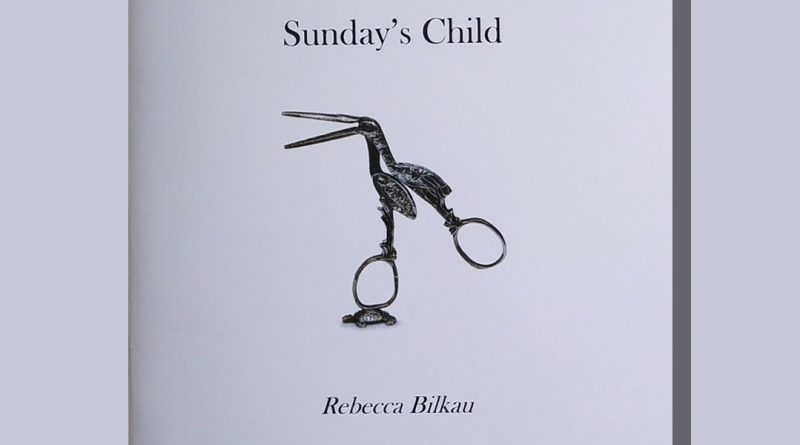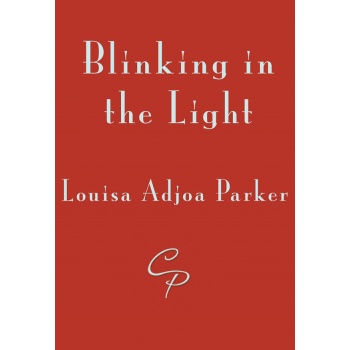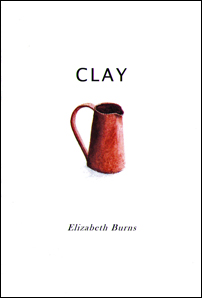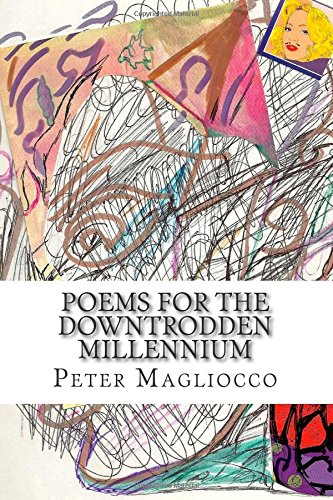Sunday’s Child by Rebecca Bilkau
-Reviewed by Emma Lee-
Sunday’s Child is a 23-part poem sequence that explores illegitimacy at a time when children born to unmarried mothers was a source of shame with both child and mother suffering stigma and exclusion. Often, pregnant, unmarried women were sent to convents and used as unpaid labour in return for bed, board and maternity care. The babies were often put up for adoption through the church, and it was unusual for a mother to be allowed to keep her baby. In Part 1
Ma called the home St Bigots.
Said the swelling girls were sent
to learn their proper places
It continues,
Ma learned lessons including skivvying,
humiliation and surrendering
your baby to suitable parents.
Ma was rebellious enough to keep her baby. Others, in Part II, were
Allowed, for a twilight hour,
nursing from the girls who bore us.
Snatched away again for the night.
Or life.Infants confuse easily. Too many
cuddles from the girls who incubated us
could be unsettling when we met
our Proper Mummies.
The convent seems to recognise that it’s cheaper for the babies to be breastfed by their mothers until the adoptive parents can take them. However, the birth mothers are not allowed to bond with their babies. The birth mothers are reduced to functions, “incubated” and told their babies will be “confused” or harmed by bonding. The actual harm is done by not allowing babies to be cuddled and forcing their mothers to conform to societal pressures to give the babies up for adoption. It’s noticeable that this feeding takes place at twilight, setting a gloomy mood with the implication that not all the babies were given up willingly.
The convent had a practice of sending out birthday cards until the child’s third birthday. In Part VII, however, the convent didn’t always get the dates right,
Ma said I came to light on a Sunday
round quarter to midnight. Bonny
and blithe and dimples and smiles.
One up on the nuns’ implied Monday’s child.
From the nursery rhyme, Sunday’s child is bonny and blithe, Monday’s child is merely fair of face. The beginning of the poem blames the convent but later the mother suggests the daughter was born late afternoon, casting doubt on the actual birth time. The poem’s speaker suggests this doesn’t matter. But the confusion could reflect the trauma of the stigma attached to being a single mother combined with the treatment at the convent, since trauma can affect memory. This isn’t explored, however. While “Sunday’s Child” is a loving relationship that survived the stigma, there’s a reminder in Part XI that endings weren’t always happy, Ma’s friend “haunts the new Georgian houses” after,
Her parents, lips like whips, let her keep
the baby but destroyed the rest: hope,
charity, a stab at redemption. The word
was, she was meant to drown her baby
with her, but slipped while the cradle
rested in the reeds.
The sound echo and short vowel in “lips like whips” underline the sense of parents being short and abrupt, constantly undermining their daughter and reminding her that not all mothers in her situation get to keep the baby. The daughter, believing her parents will behave the same way to their grandchild, plans to drown her child with her but the baby survives. Readers aren’t told what happened to the baby, the poem’s focus is on the mother and the avoidable tragedy.
In Part XIII, a prose poem, a former soldier, now an octogenarian, rails against those who attack single mothers, they do the job of two parents. The speaker observes, “A half-orphan isn’t the same as a roll-in-the-hay gone wrong, is it?” Society’s punishments for single mothers is never given to the fathers, who are allowed to brush off the resulting child as a mistake and dodge the consequences. Unlike mothers who not only raise the child but do so under huge societal disadvantage. The complications last long after childhood. In Part XVIII the speaker’s fiancé requests her baptism certificate. He is not religious, but his parents are. The convent has closed down,
But, for the love of God, and pity’s sake,
a clerk finds a copy to copy. Handwrites
a cover letter, so full of good will
it seems she wants to erase my sad start,
insert a brighter future. Noticed, perhaps,
the spindly information on the form; just Ma
and me listed
The relationship didn’t last. The actions of the clerk show the slow change in attitudes towards single mothers. While single mothers are still not fully welcomed, at least there’s a sense of stigma easing.
The only part with a title is Part XXIII: The truth, where her mother is close to death and offers to tell the speaker about her father,
I stopped breathing. We’d mythologized
my genesis years ago, hidden the photos
of the fifties so well, it took forty years
for her to find them. I’ve been trying,
trying. But I can’t remember. Though those
were our crying days, we both stayed dry-eyed.
After she died, all I could recall was her
driving to London to fix my broken heart.
The speaker realises she will never know who her father was. But also acknowledges it’s perhaps not important. Her mother has always been there. The poem ends on an image of spring, of hope.
Sunday’s Child chronicles a time when single mothers were stigmatised and unmarried women who became pregnant were encouraged to give up their babies for adoption and live with the pain of separation. The speaker’s mother was strong and rebellious enough to ignore societal pressure and keep her baby. But that decision was not without consequences, which these quiet poems explore with compassion.





